Emotional Updates
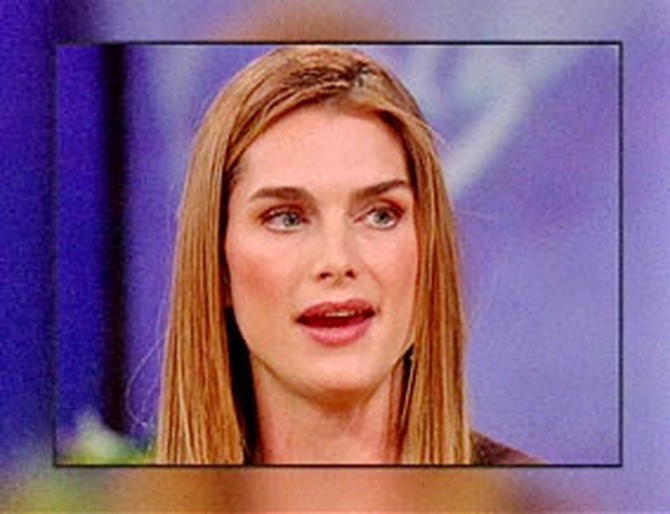
In May 2005, Brooke Shields spoke out about her battle with postpartum depression for the first time. Her life-long dream of becoming a mother turned into a nightmare when she gave birth to her daughter, Rowan. She spiraled into a deep depression and even considered taking her own life.
But, it was her candid admission that she used antidepressants to manage her illness that landed Brooke in a firestorm of controversy.
She has been publicly criticized for choosing to take antidepressants to combat postpartum symptoms, and some have suggested that there are ways of using vitamins and exercise to ease the depression.
But, it was her candid admission that she used antidepressants to manage her illness that landed Brooke in a firestorm of controversy.
She has been publicly criticized for choosing to take antidepressants to combat postpartum symptoms, and some have suggested that there are ways of using vitamins and exercise to ease the depression.
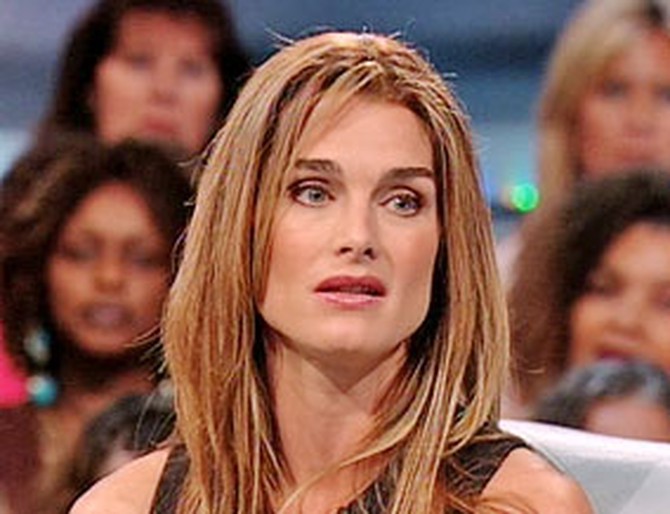
Oprah: Did you think that if you had just done exercise and vitamins that you could have gotten better?
Brooke: I think exercise and vitamins are a very important part of every person's life. I think they're valid. [But] I don't think they would have helped me through my postpartum depression alone.
It wasn't until I balanced what I needed to personally balance in my biochemistry in my body, through the help of a professional, did I start to feel better and see results. That is what works for me; [it] would not necessarily work for someone else. I think the responsibility really needs to be between the medical professional and the individual, and I think we need to start, as women, asking more questions. Asking what our options are; asking if it's normal to feel this sad.
Brooke: I think exercise and vitamins are a very important part of every person's life. I think they're valid. [But] I don't think they would have helped me through my postpartum depression alone.
It wasn't until I balanced what I needed to personally balance in my biochemistry in my body, through the help of a professional, did I start to feel better and see results. That is what works for me; [it] would not necessarily work for someone else. I think the responsibility really needs to be between the medical professional and the individual, and I think we need to start, as women, asking more questions. Asking what our options are; asking if it's normal to feel this sad.

Does Brooke regret sharing her struggle with depression?
"I just told my story," Brooke says. "I'm one mother that experienced what I experienced. You know, I never was trying to go out and promote drugs. I feel good about what I did. I feel good about the choices I made. But it is purely a choice that I had to make in conjunction with my doctor.
"I chose to talk about it because it was so devastating to me...I felt a responsibility to my daughter," Brooke says. "I felt a responsibility to myself to take responsibility for the way I feel. To move past it. To not be ashamed. And then see how that possibly could help other people."
Despite the challenges she's faced, Brooke is ready to move on and become a mother again!
"I've always wanted more than one child," Brooke says. "Now I feel I'm so much more informed. I'm armed with so much more knowledge now that I'm not afraid because I understand what the worst could feel like...I'm so much more educated on myself and my body."
"I just told my story," Brooke says. "I'm one mother that experienced what I experienced. You know, I never was trying to go out and promote drugs. I feel good about what I did. I feel good about the choices I made. But it is purely a choice that I had to make in conjunction with my doctor.
"I chose to talk about it because it was so devastating to me...I felt a responsibility to my daughter," Brooke says. "I felt a responsibility to myself to take responsibility for the way I feel. To move past it. To not be ashamed. And then see how that possibly could help other people."
Despite the challenges she's faced, Brooke is ready to move on and become a mother again!
"I've always wanted more than one child," Brooke says. "Now I feel I'm so much more informed. I'm armed with so much more knowledge now that I'm not afraid because I understand what the worst could feel like...I'm so much more educated on myself and my body."
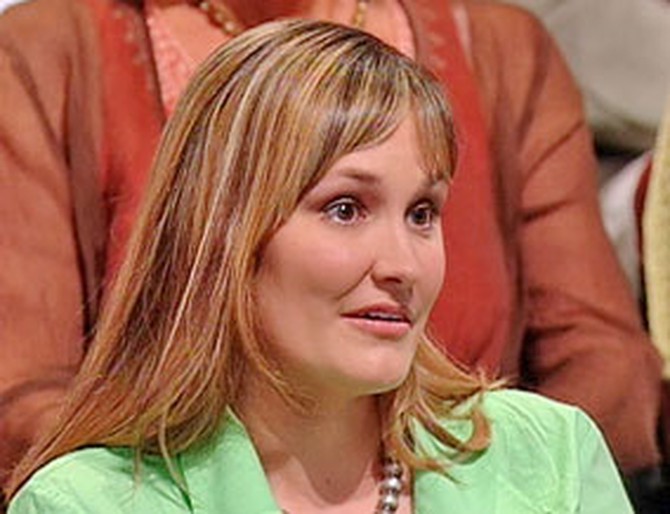
After Brooke's appearance on the show, the response from women around the world was huge. Noel, a mother of two from Albuquerque, New Mexico, says that hearing Brooke's story convinced her that she also needed to seek help for her postpartum symptoms.
"It got really bad," Noel says. "There were times when not only did I consider running away but that I wanted to hurt my youngest daughter. ... There would be times when I would be doing the laundry, and I'd see her laying in the laundry basket...I wanted to put her in the dryer, and see how long the dryer would tumble before she'd stop crying."
After reading Brooke's book, Down Came the Rain, Noel says she realized that she wasn't alone in her struggle. She decided to start taking medication and seeing a therapist.
"My therapist has helped me to understand that it wasn't my fault; that I didn't ask for this," Noel says to Brooke. "It was just something that was dealt to me. And without your book...I wouldn't have had the courage to seek help."
"It got really bad," Noel says. "There were times when not only did I consider running away but that I wanted to hurt my youngest daughter. ... There would be times when I would be doing the laundry, and I'd see her laying in the laundry basket...I wanted to put her in the dryer, and see how long the dryer would tumble before she'd stop crying."
After reading Brooke's book, Down Came the Rain, Noel says she realized that she wasn't alone in her struggle. She decided to start taking medication and seeing a therapist.
"My therapist has helped me to understand that it wasn't my fault; that I didn't ask for this," Noel says to Brooke. "It was just something that was dealt to me. And without your book...I wouldn't have had the courage to seek help."
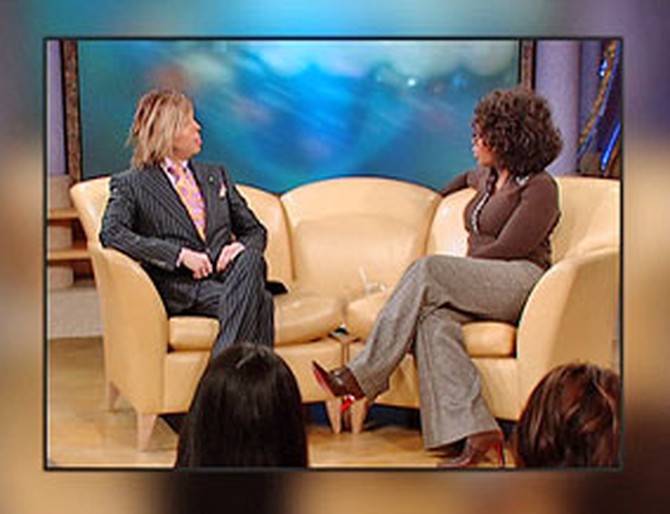
Celebrity star reporter Steven "Cojo" Cojocaru made a name for himself as a red carpet regular. At the age of 40, he was living the life of his dreams until one ordinary day last spring. It was on a routine visit to the doctor that Cojo was told he was in the final stages of kidney failure and was in desperate need of a transplant.
But Steven's dear friend, Abby, stepped up with a miracle. She donated one of her own kidneys to save his life. And just two months after a successful surgery, Cojo appeared on our show.
But days later, Steven developed a high fever and flu-like symptoms—his body was rejecting the new kidney and there was nothing the doctors could do to stop it.
"I got ragingly sick and I went into the hospital and the doctor said, 'You have something called a polyoma virus.' [It's] very rare," Cojo says. "And then my whole world was shattered."
And how did Abby feel about it?
"Oprah, that was probably one of the worst parts of it, having to tell Abby about this," Cojo says. "I feel incredibly guilty, to be honest with you. It still eats away at me. ... In a way I feel like I let her down, you know? But she was wonderful."
But Steven's dear friend, Abby, stepped up with a miracle. She donated one of her own kidneys to save his life. And just two months after a successful surgery, Cojo appeared on our show.
But days later, Steven developed a high fever and flu-like symptoms—his body was rejecting the new kidney and there was nothing the doctors could do to stop it.
"I got ragingly sick and I went into the hospital and the doctor said, 'You have something called a polyoma virus.' [It's] very rare," Cojo says. "And then my whole world was shattered."
And how did Abby feel about it?
"Oprah, that was probably one of the worst parts of it, having to tell Abby about this," Cojo says. "I feel incredibly guilty, to be honest with you. It still eats away at me. ... In a way I feel like I let her down, you know? But she was wonderful."
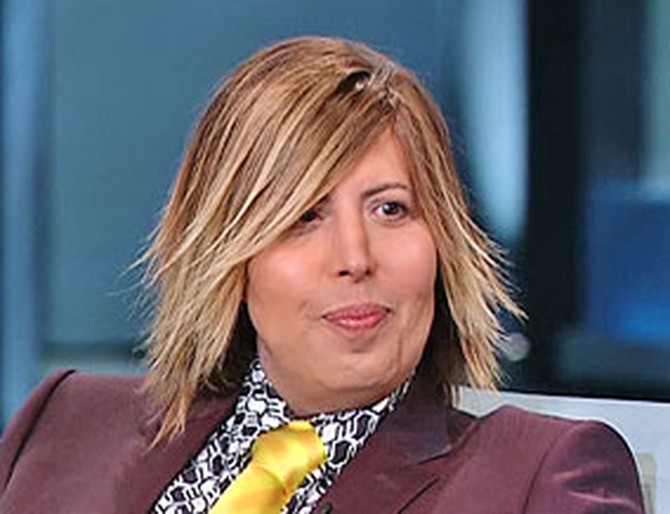
Every night, Steven must hook himself up to a machine that will clean his body of toxins. "You fill your body with a dextrose kind of fluid—it goes in through intravenously—and then it comes out so the machine is sort of draining with a spin cycle all night long," Cojo explains.
Cojo says he's surprised that he can deal with the dialysis. "I fought it so strenuously," he says. "I've been going to kidney doctors for the last year and I would see in the waiting room the dark part of dialysis—sick people hunched over in wheelchairs. ... Now that I faced it, this is the other face of dialysis and I'm kind of proud of that, too, that you can function."
Oprah: What will you do, though, if you don't get a kidney? Is there a time limit to how long your body can go on?
Cojo: People have told me they've been on dialysis for 25 years, 30 years. ... [But] I know I'm going to get a kidney. I'm saying that right here, right now. There's no other way. It's going to happen.
Cojo says he's surprised that he can deal with the dialysis. "I fought it so strenuously," he says. "I've been going to kidney doctors for the last year and I would see in the waiting room the dark part of dialysis—sick people hunched over in wheelchairs. ... Now that I faced it, this is the other face of dialysis and I'm kind of proud of that, too, that you can function."
Oprah: What will you do, though, if you don't get a kidney? Is there a time limit to how long your body can go on?
Cojo: People have told me they've been on dialysis for 25 years, 30 years. ... [But] I know I'm going to get a kidney. I'm saying that right here, right now. There's no other way. It's going to happen.
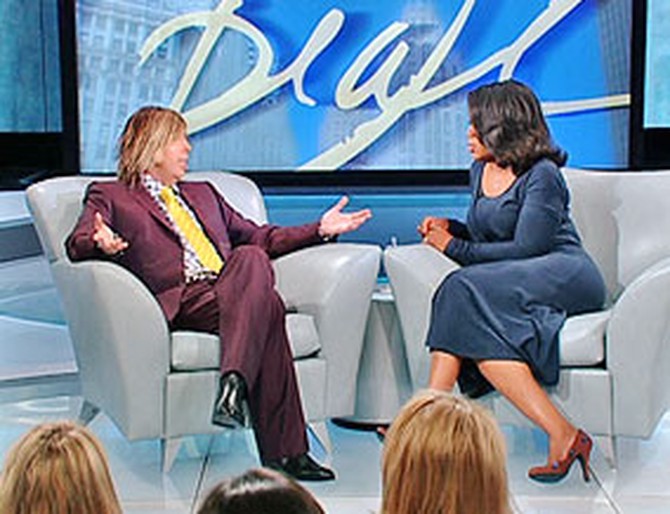
Oprah: The last time you were here you said to me that [this process] made you appreciate life more.
Cojo: I think about it and I was really naive. I thought that my tragedy ended with a nice little ribbon on it and we were moving on. But to save this kidney was a three-month ordeal. I was literally in and out of the hospital. ... So basically when you go through something as raw as that, then you really find out who you are. ... There were so many things that I had to learn, lessons that I had to learn with this ordeal the last three months. And one of them was vanity. I had to get over my vanity. And that was very traumatic. I looked like a pumpkin with blonde bangs—from steroids. And I had 17 chins and I was very, very conscious about that.
Oprah: Was that hard for you?
Cojo: Honestly, it was. I was torturing myself. ... But you know what? You get through it. I found there were two persons in me. The little bratty baby going, "I'm so fat. I look terrible." And then there was the adult who said, "Get over it. Get over yourself." ... I never wanted to be a role model. [I was a] very reluctant kidney poster child. ... But since it has been thrust on me for whatever reason, I do want to do a good job and I want to show people that you can have an illness, and you can get through it and you can work hard and have your life.
Cojo: I think about it and I was really naive. I thought that my tragedy ended with a nice little ribbon on it and we were moving on. But to save this kidney was a three-month ordeal. I was literally in and out of the hospital. ... So basically when you go through something as raw as that, then you really find out who you are. ... There were so many things that I had to learn, lessons that I had to learn with this ordeal the last three months. And one of them was vanity. I had to get over my vanity. And that was very traumatic. I looked like a pumpkin with blonde bangs—from steroids. And I had 17 chins and I was very, very conscious about that.
Oprah: Was that hard for you?
Cojo: Honestly, it was. I was torturing myself. ... But you know what? You get through it. I found there were two persons in me. The little bratty baby going, "I'm so fat. I look terrible." And then there was the adult who said, "Get over it. Get over yourself." ... I never wanted to be a role model. [I was a] very reluctant kidney poster child. ... But since it has been thrust on me for whatever reason, I do want to do a good job and I want to show people that you can have an illness, and you can get through it and you can work hard and have your life.
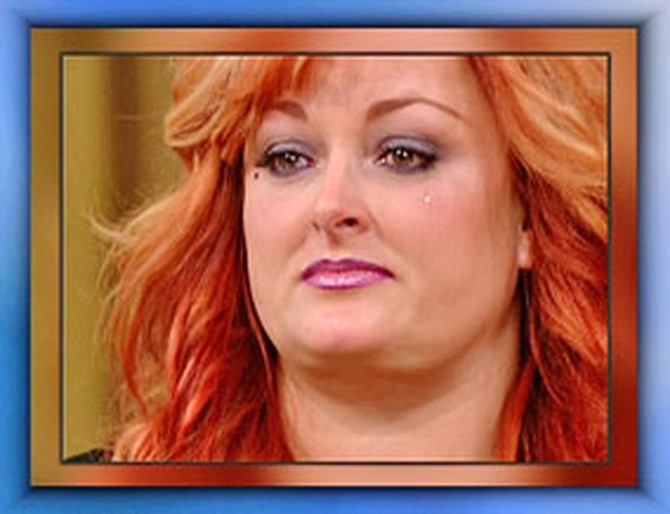
Two years ago, Wynonna Judd admitted to her millions of fans for the first time that she had a serious problem. She told us her weight was at an all-time high, her blood pressure and triglycerides were at dangerous levels and she was literally fighting for her life.
Issues with her mother, Naomi, and problems with men and self-esteem all led to a pattern of overeating. But Wynonna was determined to win this battle and asked us for help. She documented her painful struggle in her journal and video diaries.
In an effort to face the truth, Wynonna made progress in her program by discussing her weight issues with her mother for the very first time on our show. But after months of trying to lose weight in the public eye, Wynonna confessed to relapsing.
Issues with her mother, Naomi, and problems with men and self-esteem all led to a pattern of overeating. But Wynonna was determined to win this battle and asked us for help. She documented her painful struggle in her journal and video diaries.
In an effort to face the truth, Wynonna made progress in her program by discussing her weight issues with her mother for the very first time on our show. But after months of trying to lose weight in the public eye, Wynonna confessed to relapsing.
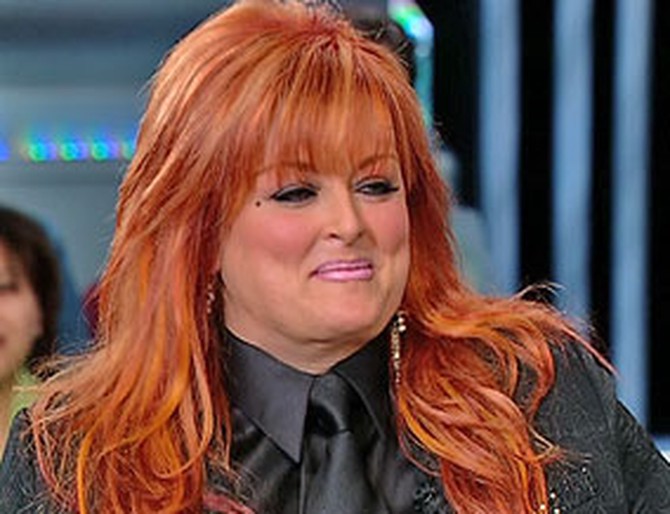
"I want to be further along in my journey," Wynonna says." ... [But] I woke up this morning and I thought, 'What's my motto for today?' And it was, 'I may not be where I want to be, but I'm sure as heck not where I was.'"
In her book, Coming Home to Myself, Wynonna talks about the painful life changes she's made to come to terms with three difficult areas in her life: food, family and finances.
"I realized the rest of my home is in such disorder," Wynonna says. "Financially I have [reduced] my spending by 30 percent. I don't do credit cards anymore. I'm actually on a budget where at the beginning of the month I get an envelope and I live off that."
Wynonna says that her "financial diet" is even more difficult than her struggle with overeating.
In her book, Coming Home to Myself, Wynonna talks about the painful life changes she's made to come to terms with three difficult areas in her life: food, family and finances.
"I realized the rest of my home is in such disorder," Wynonna says. "Financially I have [reduced] my spending by 30 percent. I don't do credit cards anymore. I'm actually on a budget where at the beginning of the month I get an envelope and I live off that."
Wynonna says that her "financial diet" is even more difficult than her struggle with overeating.
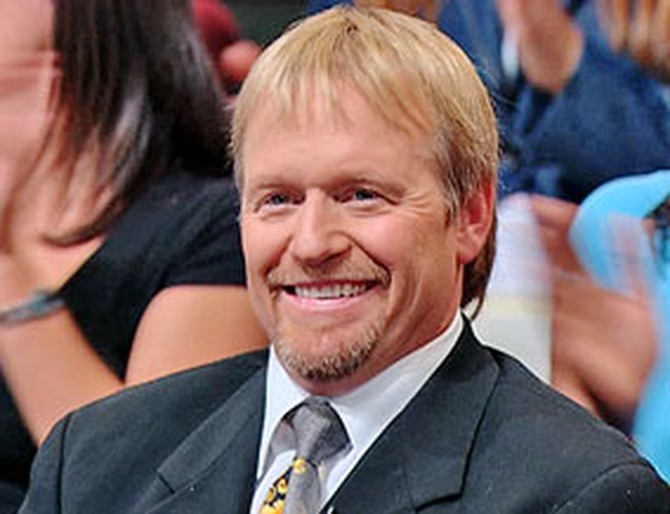
Wynonna says that only recently has she learned how to communicate more effectively with her mother, sister and husband. "I'm learning to ask for what I need because we expect family members, mates, to really read our minds. ... I'm learning to say to Roach, 'We've been working all week. I just need 15 minutes for you to hold me....'
"I've been watching Roach watch you," Oprah tells Wynonna, "and I remember that very first meeting in our office. I love the way he looks at you. I love the way he takes you in and is so for you."
"I am for her," Roach says. "With a partnership, it's reciprocal. A relationship is supposed to be give and take. And if it's not—ladies out there—if it's not, [and] you're not getting what you need from your man, that's not a relationship."
Look back at all the Judd family's Oprah Show appearances
"I've been watching Roach watch you," Oprah tells Wynonna, "and I remember that very first meeting in our office. I love the way he looks at you. I love the way he takes you in and is so for you."
"I am for her," Roach says. "With a partnership, it's reciprocal. A relationship is supposed to be give and take. And if it's not—ladies out there—if it's not, [and] you're not getting what you need from your man, that's not a relationship."
Look back at all the Judd family's Oprah Show appearances
Published 09/27/2005

